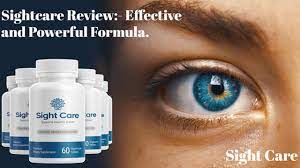Sight is one of the most precious senses, enabling us to navigate Sightcare review the world around us with confidence and independence. However, maintaining optimal eye health requires proactive care and attention. This is where the field of sightcare plays a crucial role. From routine eye exams to advanced treatments for vision disorders, sightcare encompasses a wide range of services aimed at preserving and improving vision. In this article, we delve into the importance of sightcare and its impact on overall well-being.
Understanding Sightcare: Sightcare, also known as eye care or optometry, encompasses various services aimed at promoting eye health and addressing vision-related issues. At its core, sightcare involves the diagnosis, treatment, and management of conditions affecting the eyes and visual system. This includes refractive errors such as nearsightedness, farsightedness, and astigmatism, as well as more complex conditions like glaucoma, cataracts, and macular degeneration.
Key Components of Sightcare:
- Comprehensive Eye Examinations: Regular eye exams are fundamental to maintaining good eye health. During these examinations, optometrists evaluate visual acuity, screen for eye diseases, and assess the overall health of the eyes. Early detection of vision problems allows for timely intervention and management, reducing the risk of complications.
- Prescription Eyewear: For individuals with refractive errors, prescription eyeglasses or contact lenses provide an effective means of correcting vision. Sightcare professionals work closely with patients to determine the most suitable eyewear options based on their visual needs, lifestyle, and preferences.
- Vision Therapy: In cases where vision problems stem from underlying issues with visual processing or coordination, vision therapy may be recommended. This specialized form of therapy aims to improve visual skills and perception through targeted exercises and activities. Vision therapy can be particularly beneficial for children with developmental vision disorders or individuals recovering from brain injuries.
- Treatment of Eye Diseases: Sightcare professionals are trained to diagnose and manage various eye diseases and conditions. From administering medications to performing surgical procedures, they play a vital role in preserving vision and preventing vision loss. Timely intervention is essential for conditions such as glaucoma, diabetic retinopathy, and age-related macular degeneration.
- Lifestyle Counseling: In addition to clinical interventions, sightcare professionals offer valuable guidance on maintaining healthy vision and preventing eye problems. This may include recommendations on proper eye hygiene, protective eyewear for sports and outdoor activities, and strategies for reducing digital eye strain in an increasingly technology-driven world.
The Impact of Sightcare on Quality of Life: The significance of sightcare extends beyond the realm of eye health, profoundly impacting individuals’ quality of life. Clear vision is essential for performing daily tasks with ease, whether it’s reading a book, driving a car, or enjoying recreational activities. Moreover, healthy eyesight contributes to overall well-being by enhancing social interactions, promoting independence, and fostering a sense of confidence and self-esteem.
Conclusion: Sightcare plays a pivotal role in preserving and enhancing vision, thereby improving the quality of life for millions of people worldwide. By prioritizing regular eye exams, adopting healthy lifestyle habits, and seeking timely intervention for eye-related issues, individuals can safeguard their precious gift of sight for years to come. Remember, proactive sightcare is not just about seeing better—it’s about living better.




